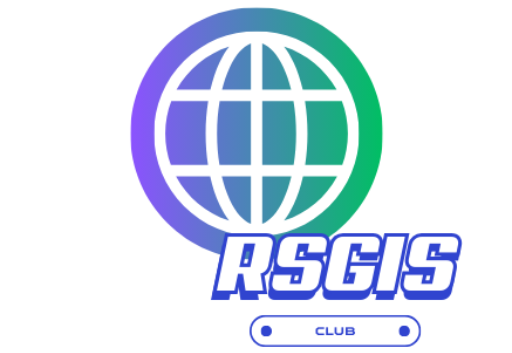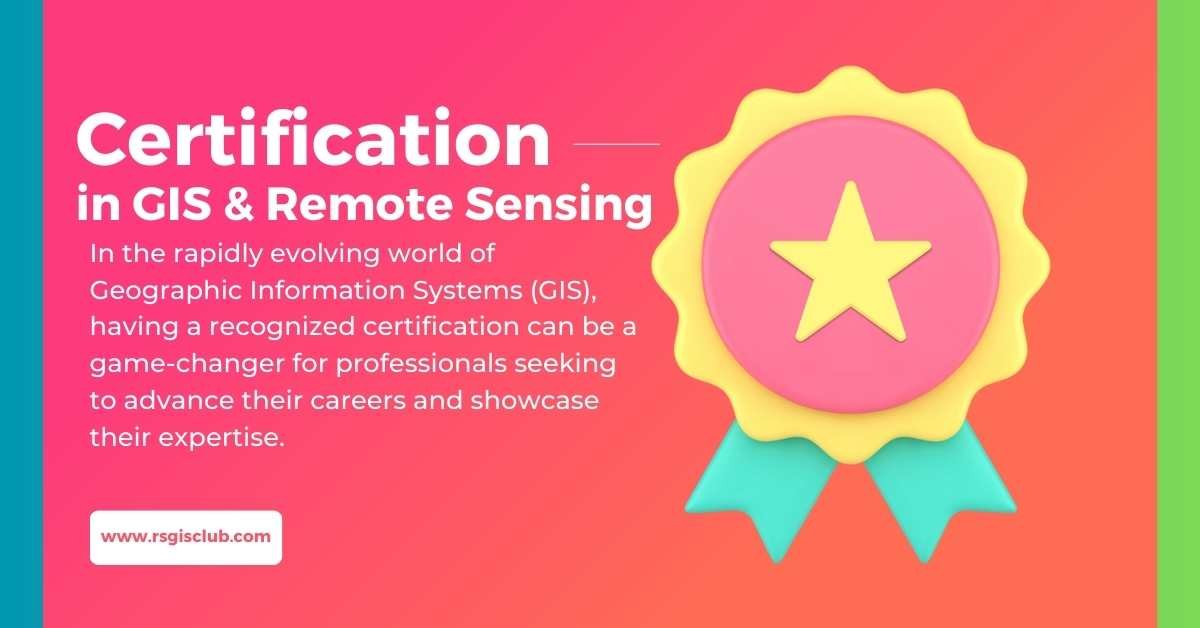In the rapidly evolving world of Geographic Information Systems (GIS), having a recognized certification can be a game-changer for professionals seeking to advance their careers and showcase their expertise. A GIS certification is more than just a title; it’s a mark of excellence that demonstrates an individual’s knowledge, skills, and abilities in the field of GIS. In this comprehensive article, we explore the top institutions offering GIS certifications, delving into the details of each program to help you make an informed decision on which certification best suits your career goals.
1. GIS Professional (GISP) Certification
The GIS Professional (GISP) certification, offered by the GIS Certification Institute (GISCI), stands as one of the most prestigious and widely recognized GIS certifications available. It sets a high standard for GIS professionals, requiring a combination of educational qualifications, professional experience, and notable contributions to the GIS community.
Eligibility and Process
The GISP certification process is a two-part evaluation. Firstly, applicants need to submit a comprehensive portfolio highlighting their educational achievements, work experience, and any significant contributions to the GIS profession, such as publications or conference presentations. This step allows candidates to showcase their dedication and commitment to the field.
Secondly, applicants must pass the GISCI Geospatial Core Technical Knowledge Exam, which evaluates their broader understanding of GIS concepts. This exam is designed to assess the applicant’s expertise in various GIS areas, ensuring that GISP-certified professionals possess a well-rounded skill set.
Maintaining GISP Status
Maintaining the GISP status requires certified professionals to recertify every three years. This process ensures that they stay updated with the evolving GIS landscape and remain relevant in an ever-changing industry. The recertification process also includes demonstrating continuous professional development, showcasing the dedication of GISP-certified individuals to their ongoing growth and improvement.
2. Esri Technical Certification
Esri, a leading provider of GIS software solutions, offers a range of technical certifications that allow professionals to demonstrate their proficiency in specific aspects of Esri’s software suite. With a diverse array of certifications, Esri empowers GIS specialists to showcase their expertise in various areas, from desktop and developer to enterprise use.
Certification Levels
Esri’s certification program includes multiple levels to cater to different skill sets and experience levels:
- Foundation Certification: Suitable for beginners, this level covers fundamental concepts and techniques.
- Associate Certification: Targeted towards those with some experience, this level dives deeper into specific topics.
- Professional Certification: Designed for experienced professionals, this level demonstrates a higher level of expertise in utilizing Esri’s GIS software.
- Specialty Certification: Focused on specialized areas, this level allows professionals to highlight their knowledge in niche aspects of Esri’s software.
Certification Examination
Obtaining an Esri certification requires passing a rigorous examination that assesses the applicant’s knowledge and skills in using Esri’s GIS software. These exams are thoughtfully designed to evaluate both theoretical understanding and practical application, ensuring that Esri-certified professionals are equipped to handle real-world GIS challenges.
3. ASPRS Certification
The American Society for Photogrammetry and Remote Sensing (ASPRS) offers a well-regarded GIS certification program that covers various areas of GIS, photogrammetry, and remote sensing. This certification program aims to assess professionals’ knowledge and skills in these specialized disciplines and offers certification at different levels of expertise.
Certification Levels
ASPRS certification program includes various levels, allowing individuals to choose the most suitable certification for their career stage:
- Technician Level: Ideal for beginners, this level covers foundational concepts and practical skills.
- Professional Level: Targeted towards experienced professionals, this level delves deeper into advanced topics and applications.
- Mapping Scientists: This level recognizes individuals with exceptional expertise and experience in the field.
Certification Process
ASPRS certification process entails a comprehensive evaluation of the candidate’s knowledge and skills through examinations and, in some cases, practical assessments. Achieving ASPRS certification showcases a professional’s dedication to continuous improvement and staying updated with the latest developments in GIS, photogrammetry, and remote sensing.
Choosing the Right GIS Certification
Selecting the most suitable GIS certification program depends on various factors, including your level of experience, career goals, and specific areas of interest within GIS. Here are some key considerations to help guide your decision:
- Career Goals: Identify your long-term career objectives and choose a certification that aligns with your aspirations. Whether you aim for GIS project management or technical expertise, the right certification can pave the way to success.
- Specialization: If you have a particular interest or expertise in a specific aspect of GIS, consider a certification that focuses on that area. Specializing in a niche can make you highly sought-after in the job market.
- Institution Reputation: Research the reputation and recognition of the certifying institutions to ensure your certification holds weight in the industry. Highly regarded certifications can significantly enhance your professional credibility.
- Eligibility Requirements: Check the eligibility criteria for each certification to ensure you meet the necessary qualifications and experience levels. Some certifications may have prerequisites that you need to fulfill before applying.
- Examination Format: Understand the examination format and content for each certification to prepare effectively. Knowing what to expect will enable you to tailor your study plan accordingly.
- Industry Demand: Research the demand for certified GIS professionals in your desired job market. A certification with high demand can open up more career opportunities.
In conclusion, obtaining a certification in Geographic Information Systems (GIS) is a powerful way to showcase your expertise and boost your career prospects in this dynamic field. The three recognized GIS certifications discussed in this article—GIS Professional (GISP), Esri Technical Certification, and ASPRS Certification—each offer unique opportunities for professional growth and recognition.

